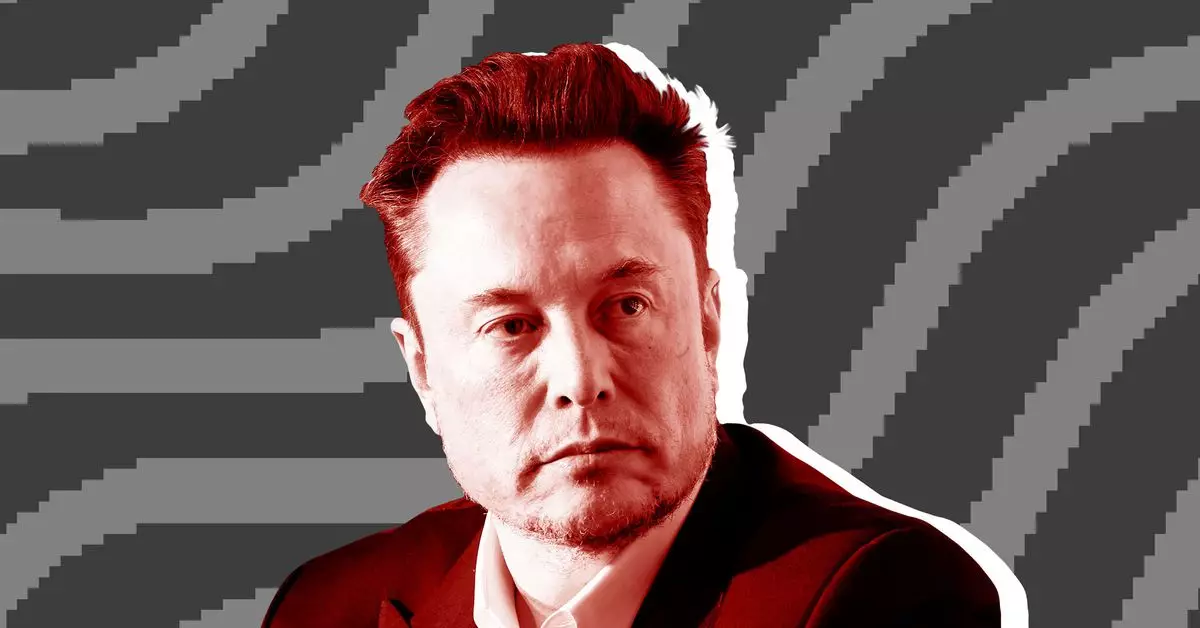The unveiling of the Department of Government Efficiency (DOGE), spearheaded by high-profile figures Elon Musk and Vivek Ramaswamy, marks a pivotal shift in the way government aims to function in the United States. President-elect Donald Trump’s decision to entrust these controversial but influential leaders with the task of overhauling federal bureaucracy has sparked considerable interest—and skepticism. It raises several questions about both the efficiency of governance and the effects of tech-driven leadership on political structures.
Musk, the mastermind behind Tesla and SpaceX, is known for his unorthodox, often disruptive approach to business. He is celebrated in many circles as an innovator, yet his penchant for controversy invites scrutiny regarding his competency in navigating federal protocols and the delicate mechanisms of governance. Ramaswamy, meanwhile, brings a unique perspective as a biotech entrepreneur who is closely aligned with conservative beliefs. Their dual leadership offers an intriguing juxtaposition, where Silicon Valley’s disruptive ethos meets traditional conservative values, hinting at a possible clash or symbiosis of ideas.
At the heart of DOGE’s mission lies the ambitious aspiration to “dismantle Government Bureaucracy” and streamline the operations of Federal Agencies. The statement issued through former President Trump’s social media platform, Truth Social, outlines goals that resonate with a longstanding Republican desire for reduced government intrusion and waste. Trump’s vision of an efficient government is not new but reflects a fundamental ideological divide in American political discourse: the balance between regulation and free enterprise.
However, the notion that a “private” team of entrepreneurs can effectively tackle systemic issues within the government raises legitimate concerns. Government bureaucracy is riddled with complexities and historical inertia that often resist swift changes. Critics ponder: Can technologists who thrive in markets truly recalibrate a public sector entrenched with accountability, checks, and balances? Reducing government waste is an achievable goal, yet unless Musk and Ramaswamy introduce nuanced strategies that account for the multifaceted nature of public service, their efforts may falter.
The ambitious target of cutting $2 trillion from government expenses, championed by Musk, is laden with difficulties. Analysts from The Washington Post suggest achieving such sweeping reductions could be “virtually impossible,” especially if any meaningful cuts involve social safety nets such as Social Security or the defense budget. This poses a critical question: How will Musk navigate these contentious areas without igniting backlash from different demographics?
Additionally, the goal of upending entrenched systems intersects with unavoidable political realities. Some may argue that radical changes, particularly in welfare programs, could disproportionately affect vulnerable populations, undermining the social contract that binds society. It remains to be seen whether DOGE will be viewed as an economic savior or a reckless disruptor dependent upon elitist paradigms that overlook everyday citizens’ needs.
Coinciding with DOGE’s formation has been an intriguing uptick in the value of Dogecoin, strongly associated with Musk as a vocal advocate. As his colorful endorsements proliferated, the social media reactions translated into tangible economic shifts. This raises a critical dialogue about the intersection of cryptocurrency, governance, and public trust. Does leveraging financial instruments and digital currencies exemplify innovative solutions or signify a dangerous flirtation with speculative markets that could imperil financial predictability within government funding models?
The preoccupation with mitigating costs while tackling bloated spending is well-founded but does not capture the complete picture. Prioritizing fiscal austerity often necessitates a nuanced understanding of the broader economic ramifications. Structural reforms, if poorly executed, risk creating disarray rather than efficiency. The ability to balance efficiency with equity will be pivotal for DOGE’s long-term impacts on American governance.
A Final Reflection
The establishment of the Department of Government Efficiency under the stewardship of Elon Musk and Vivek Ramaswamy stands as a bold experiment in governmental reform. Whether their approach will yield meaningful improvements, however, is contingent upon their ability to realize a vision that satisfies economic imperatives while remaining attuned to the social fabric of the United States. As the clock ticks toward their deadline of July 4, 2026, their successes—and failures—will yield significant implications for the future of American governance. The stakes have never been higher for both the duo and the populace they aim to serve.


Leave a Reply